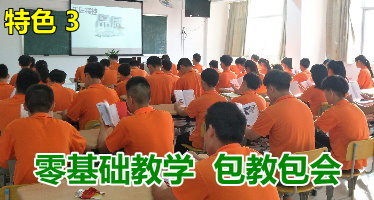详情请进入 湖南阳光电子学校 已关注:人 咨询电话:0731-85579057 微信号:yp941688, yp94168
在英语中,有时为了避免 结构上或内容上的重复,并使上下文紧密连接;有时因为语法的客观要求,句子中的一个或几个成分不需要表达出来,这种现象称为省略。英语中的省略要求不破坏语法结构,要保持句子意义的准确无误。省略有词法上的省略,也有句法上的省略,还有一种替代省略。省略部分的成分和含义可从上下文或具体语言环境中找到而且是有章可循的,英语的省略大致有以下几种情况:
一、简单句中的省略
1)感叹句中常省略主语和谓语,如: What a hot day !
How wonderful!
2) 在一些口语中可以省略某些句子成分,如:Anything else ?
Are you feeling better now ? Much better . This way, please.
二、 并列句中的省略
1) 如果主语不同,而谓语动词中的一部分相同,则省略谓语动词中相同的部分,如:John must have been playing basketball and Mary doing her homework.
2) 主语相同,谓语动词也相同,则二者都可以省略,如: His advice made John happy, but Mary angry.
3) 主语相同,而谓语不同,则可以省略主语,如: He gave up drinking for several days, but soon returned to his old ways.
4)在并列复合句中,如果that从句从属于第二个并列句且它的谓语动词和宾语等其它一些成分与第一个并列句相同, that从句通常可以省略这些相同的部分,如:Jack will danceat the party, but I know Tom won't .
三、复合句中的省略
I) 名词性从句中的省略
(1)作宾语的what从句中的谓语动词与主句的相同,则what从句可以省略谓语,甚至主语,如:Someone has used my bike, but I don't know who .
He has gone, but no one knows where.
(2)引导宾语从句的连词that在口语中常常省略,或并列的宾语从句中的第一个连词that也能省略,如:
He said he had arrived here two days before and that he had lived in a hotel.
(3)在某些表虚拟语气的主语从句、宾语从句、表语从句和同位语从句中,从句谓语动词中的助动词should可以省略。这些句子一般包含如下动词一及其派生词:一个坚持(insist),二个命令(order, command),三建议(suggest, propose, advise ),四要求(demand, require, request, ask) ,如:It's important that we speak to the old politely.
Jane's pale face suggested that she was ill and her parents suggested that she have a medical examination.
(4) It is necessary(important, impossible, strange, natural, a pity, no wonder) that...主语从句中,如: It is necessary that the problem be solved at once.
(5)有时也可以根据说话的情景来省略主句中的一些成分,如: Sorry I've kept you waiting so long.
II)定语从句中的省略
(1)在限制性定语从句中,作宾语的关系代词that, which, who (whom)常可以省略,如: The man I saw is called Tom.
Where is the pen I bought this morning?
(2)关系副词when, where, why及that在the time when, the place where, the reason why, the way that结构中引导限制性定语从句时,在非正式场合下,可以省略关系副词when, where, why和that等,如:I shall never forget the day we first met.
The reason he came so early is his own affair.
I don't like the way you speak to yourmother.
III)状语从句中的省略
(1)当状语从句中的主语和主句的主语一致,或状语从句中的主语是it,并且又含有be动词时,常可以省略从句中的主语和be动词,如:He did as told. Though tired, they went on working.
You shouldn't come to his party unless invited.
He paused as if expecting her to speak.
(2)虚拟条件句中,含助动词,情态动词,动词be或have等,若将它们提到句首,则需省略if,如: Should it rain tomorrow ,we would have to put off the visit till next week.
(3)在as(so)... as..., than引导的比较状语从句中,如: I know you can do better than Peter .
This car doesn't run as fast as that one .
(4)在as引导的让步状语从句中,当作表语的单数名词提前时,不定冠词要省略,如:Child as he is, he knows a lot.
四、动词不定式中的省略
1)有些动词,如:believe, find, think, feel, consider, imagine, prove等后作宾补的结构to be n. / adj. 中的to be可以省略,如:I consider him stupid.
His mother found him a clever boy.
2)感官动词see, hear, feel, watch, notice 等以及使役动词let, make, have后作宾补的动词不定式中的不定式符号to要省略,但变为被动结构时,to必须保留,如:They made the boy go to bed early.
The boy was made to go to bed early.
3) 动词不定式在like, love, care, want, hope, wish, expect, prefer, refuse, decide, mean, intend, try, promis等动词后作宾语时,为了避免重复,常承前省略不定式后的内容,但要保留不定式符号to, 如: I have asked her to come, but she does not want to.
---Are you and Jane getting married?---We hope to.
注意:want, like用在 when,,if ,what,as 引导的从句中,其后的to也常可省略,如:I've decided to do what I like.
I'll teach you if you like.
I would do it for you, but I don't know how to
4)在can not but, can not choose but, do nothing but..., can't help but..., prefer to do rather than do ...., would do... rather than... 之后的动词不定式一般不带to;but之前有实义动词do的某个形式do, does, did, done 而且其宾语是something,nothing,anything和everything等不定代词时,也不带to, 否则要带to,如: We have nothing to do now but wait.
I can not but admire his courage.
He has no choice but to accept the fact.
5)在并列结构中为了避免重复,后一个to省略,如:I'm really puzzled what to think or say.
但两个不定式有对照或对比的意义时,则后一个to不能省略,如:I came not to scold but to praise you.
6)在why, why not 引导的特殊问句中后跟省略to的动词不定式,如: Why talk so much about it?
Why not try it again?
7)动词不定式与 be able to, be going to, have to, ought to, used to等构成复合谓语时,不定式结构常可省略,但要保留不定式符号to,如I dont want to wait for him, but l have to.
He doesnt like fish, but he used to.
---Why didnt you come to our party?---I was going to,but l had a report to write.
8)动词不定式中动词原形部分是否省略,主要看句子前面是否已出现过同样的动词。如果句子前面出现过同样的动词,为了避免重复,句子后面的不定式常省略动词原形,而保留不定式符号to,如:They may go if they wish to.
Don't go till I tell you to.
9)动词不定式在 ask, warn, tell, advise, force, wish, expect, allow, permit , invite, persuade, order, would like, forbid等动词后作宾语补足语或主语补足语时,常可省略,如:She wants to come, but her parents won't allow her to.
Dont touch anything unless your teacher tells you to.
You'd better give a performance if you are asked to.
He didn't come, though we had invited him to.
10)动词不定式在happy, glad, eager,anxious,willing, ready等形容词等后承前省略动词原形,只保留不定式符号to ,如: ---Will you join me in a walk?---I'll be happy to.
I think he should get a job,but you can't force him to if he's not ready to.
注:承前省略的动词不定式如果有助动词have或be,则要保留be或have,如:---Are you a doctor? ---No, but I used to be .
五、某些词法上的省略
1. 名词所有格后修饰的名词在以下情况可以省略
1)如果名词所有格修饰的名词在前文已出现,则可以省略,如: These are John's books and those are Mary's .
2) 名词所有格所修饰的名词,若表示住宅、店铺、教堂或上文已暗示或明确指出过的事物时,常常可以省略。如:at the doctor's 在诊所 ,at Mr. Green's ,to my uncle's ,at the barber's.
2. 冠词的省略
1) 在the next day (morning, week, year...)等短语中,有时为了使语气紧凑定冠词the 常可以省略,如:We went to the farm to help the farmers with the harvest (the) next day.
2)在副词的 高级前面的定冠词常可以省略,如:She sings best in the class.
3)在某些独立主格结构中,如:
Our teacher came in, book in hand.
Our teacher came in, with a book in his hand.
3. 介词的省略
1)both 后常跟of短语,其后可以接名词复数形式,也可以接代词宾格复数形式。接复数名词时,介词of可以省略,但接代词宾格时,of不能省略,如: Both (of) the films were interesting.
She invited both of us to her birthday party.
2)在现在完成时表持续和重复的句型中,一段时间前的介词for可以省略,如:These shoes are worn out.
They have lasted (for) a long time.
3)被动结构中,如果没有必要强调动作的执行者,则可以省略介词by短语,如: The letter was posted yesterday.
4)和一些动词搭配构成的短语中的介词,如:consider... (as)..., prevent / stop... (from)doing..., have trouble / difficulty... (in) doing...,spend... (in / on) doing... 等中的介词可以省略,如: I have some difficulty (in) answering the question.
Can you stop him (from) going swimming in the river?
六 、替代性省略
1)在一些交际用语中的某些动词,如:think, suppose, expect, believe,guess等后常常和so, not等连用,以替代上文出现的内容,如: ---Do you suppose he is going to attend the meeting? ---I suppose not.
2)So / Nor(Neither) 谓语 主语这种句型是用来替代前面提到的情况,表明它也适用于后者,如: ---I don't think I can walk any further. ---- Neither can I . Let's stop here for a rest.
梅河口电工培训学校,梅河口电工培训班,梅河口电工学校,梅河口学电工的学校,梅河口电工培训哪里好,梅河口电工培训学校,梅河口电工短期培训班,梅河口电工培训学校地址,梅河口学电工培训,梅河口电工培训哪里好,梅河口电工培训班,梅河口电工技术培训.(编辑:hnygdzxx888)(整理:梅河口电工培训学校)
湖南阳光电子学校教学特色







